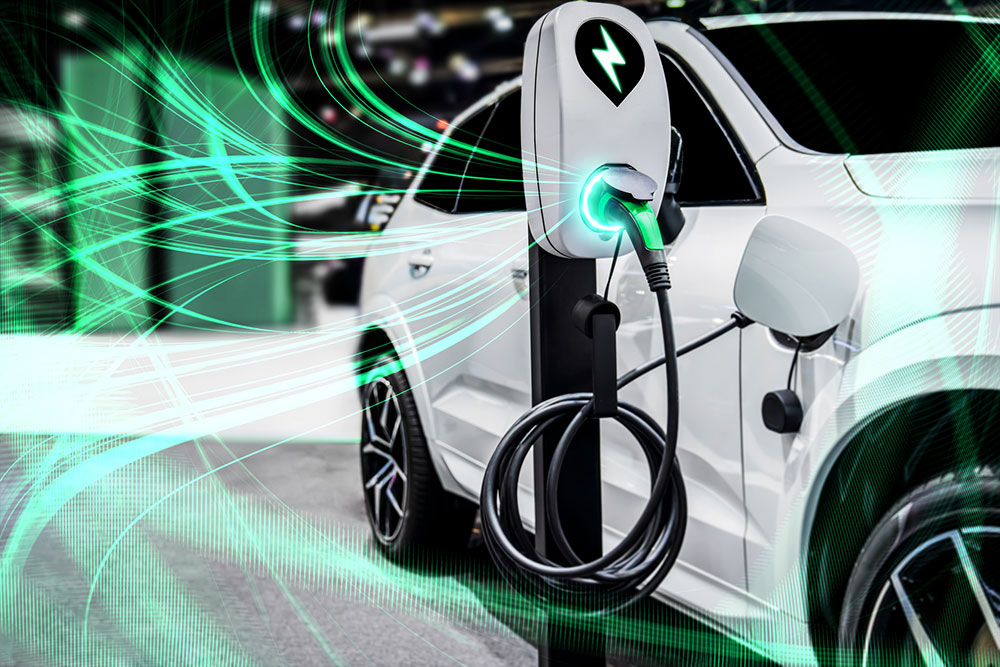Tech track: Toyota works on zero-emissions Hilux

Toyota has started development on a prototype Hilux fuel cell electric vehicle driven by customer demand.
As part of their holistic approach, Toyota has identified an opportunity in the commercial vehicle market for a zero-emissions product.
Toyota Motor Manufacturing (UK) Ltd (TMUK) will partner with UK-based technical partners Ricardo, ETL, D2H and Thatcham Research and will receive technical support from Toyota Manufacturing Europe.
They will receive funding from the UK government to cover the development of a fuel-cell-powered Hilux with the aim to adopt second-generation Toyota fuel cell components (as used in the latest Toyota Mirai) for the transformation of the vehicle.
Home solar advice tool launched
A free tool for tailored guidance on the ideal solar and battery setups called SunSPOT, has been launched.
Developed by APVI and the University of New South Wales, the online tool allows users to calculate size, cost and potential savings from household renewable systems and is the only such platform offering this information without a sales motive.
Australian households and small businesses can use SunSPOT to find out what solar system size will give them the best return on their investment and get an estimate of the cost and annual savings in less than five minutes.
Users can also compare the costs and annual savings with different battery sizes.
Users can add their smart meter data and electricity tariffs for even more accurate estimates, if desired.
New battery offers ‘ultra-long’ life
Sodium-sulphur batteries have been around for several decades, but they have been significantly inferior compared with traditional lithium-ion batteries when it comes to energy density, life cycle and capacity.
Now researchers from the University of Sydney say they have developed a new type of sodium-sulphur battery which they boast offers ‘super-high capacity and ultra-long life’, and which will be much cheaper than traditional batteries.
Using a simple pyrolysis process and carbon-based electrodes, which help to improve the reactivity of sulphur and the reversibility of reactions between sulphur and sodium, the researchers claim their new battery offers four times the energy capacity of lithium-ion batteries and is far cheaper to produce.
The sodium-sulphur battery developed by Dr Shenlong Zhao’s team has been specifically designed to provide a high-performance solution for large-scale renewable energy storage systems.
Related topics
Things to note
The information in this article has been prepared for general information purposes only and is not intended as legal advice or specific advice to any particular person. Any advice contained in the document is general advice, not intended as legal advice or professional advice and does not take into account any person’s particular circumstances. Before acting on anything based on this advice you should consider its appropriateness to you, having regard to your objectives and needs.
Insurance Products (excluding Travel Insurance) are issued by RACQ Insurance Limited ABN 50 009 704 152 (RACQI) and arranged by RACQ Distribution Services Pty Ltd (RDS) ABN 35 116 361 650, AFSL 567130 and RDS' authorised representatives (including RACQ Operations Pty Ltd ABN 80 009 663 414, AR No. 234978 (RACQO)). Conditions, limits and exclusions apply.
Any advice provided by RDS and RACQO is general advice only and does not take into account your personal objectives, financial situation or needs and you will need to consider whether the advice is appropriate for you. Read the Product Disclosure Statement (PDS) before making a purchase decision on the product. You can also access our Target Market Determinations on this website.
RDS receives a commission from RACQI for the policies it arranges. RACQO receives fees paid for services it provides to RDS. Further details about remuneration are available on request prior to purchasing.
Banking and loan products issued by Members Banking Group Limited ABN 83 087 651 054 AFSL/Australian credit licence 241195 trading as RACQ Bank. Terms, conditions, fees, charges and lending policies apply. This is general advice only and may not be right for you. This information does not take your personal objectives, circumstances or needs into account. Read the disclosure documents for your selected product or service, including the Financial Services Guide and the Terms and Conditions, and consider if appropriate for you before deciding.
Except for RACQ Bank, any RACQ entity referred to on this page is not an authorised deposit-taking institution for the purposes of the Banking Act 1959 (Cth). That entity’s obligations do not represent deposits or other liabilities of RACQ Bank. RACQ Bank does not guarantee or otherwise provide assurance in respect of the obligations of that entity, unless noted otherwise.
RACQ Bank subscribes to the Customer Owned Banking Code of Practice which establishes higher standards than the law requires. The Code reflects modern consumer expectations and developments in approaches to issues such as consumer vulnerability, guarantors, and supporting customers through financial hardship. Please read our Customer Owned Banking Code of Practice page for more information.
RACQ Operations Pty Ltd (ABN 80 009 663 414 AR 000234978) and Members Travel Group Pty Ltd (ABN 45 144 538 803 AR 000432492) are acting as an Authorised Representative of the issuer of the insurance, Tokio Marine & Nichido Fire Insurance Co., Ltd. (ABN 80 000 438 291 AFSL 246 548). Any advice set out above is general in nature only, and does not take into account your objectives, financial situation or needs. Before purchasing any travel products, please consider the RACQ Travel Insurance Product Disclosure Statement (PDS) and the Target Market Determinations (TMDs) that apply to these products. Whilst the PDS outlines the Terms and Conditions of these products, the TMDs outline the intended class of customers that comprise the target market for these travel products. This will allow you to consider which products best suit your objectives, financial situation and needs and consider the products appropriateness to your personal circumstances. TMDs also outline matters involving the distribution and the review of these products. The PDS, Supplementary PDS and TMDs for each travel product can be found here.
